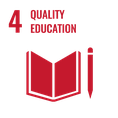Mobile school in Telangana

Mobile school
This project supports the Children of the organic cotton farmers.

Addressed issue / objectives
Since March 2020, there has been an uninterrupted school lockdown in India. To enable the children of organic
cotton farmers to escape the fate of illiteracy and continue their education, the partners of the School Projects have set up an interim project instead: We are sponsoring a mobile school in
which over 1,500 students from ten villages will be taught important subjects and learn how to use digital communication technologies for one year.

Project budget
15 000€

Project location
Rural areas in India

Project benefits
762 girls and 763 boys
(children of the bio cotton farmers)

Project status / duration
Start of planning - October 2021
Start of mobile school - January 2022 (duration approx. 12 months)
finished
Strengthening Skills of Primary & High School Students in Rural Areas on Adaption to E-Learning

Project details
Schools in India have now been closed continuously for over two years due to the pandemic lockdown ordered by the government. While classes continue digitally, many children are unable to attend. They lack access to the internet, a smartphone or tablet for online learning, or have to share it with several siblings. Children of families in rural areas are particularly affected by this. Instead of attending classes, these children have become more involved with household chores or agricultural activities. For many of them, there will be no way back to the classroom. With our project, we want to counteract this development and promote that the children can continue their school education and avoid the fate of illiteracy, strengthen skills of the students on digital learning and minimize the psychological issues due to reduced peer-group interventions in the schools and also due to a lack of connectivity with the mainstream schools.
- Mobile school in village clusters at least 5 days a week to motivate students and deepen their knowledge and help them clear backlogs more effectively.
- Developing teaching kits with e-learning materials.
- Two teachers to provide instruction in core subjects such as mathematics, science, social studies, the national language Odin and English. In addition to these subjects, the curriculum will also include the use of computers and mobile devices such as tablets or smartphones.
- Creating basic infrastructure and a good learning environment.
- Setting up temporary learning centres in two village community halls to store materials needed for all age groups, such as audio-visuals, textbooks, reference books, writing pads and pens, and e-learning kits.
- Promoting extracurricular activities such as debating, essay writing, drawing or painting and providing more play materials in the villages to help the children forget about stress and play with other children.
- Organizing events for children to learn through fun and sports.




Project Supporter












